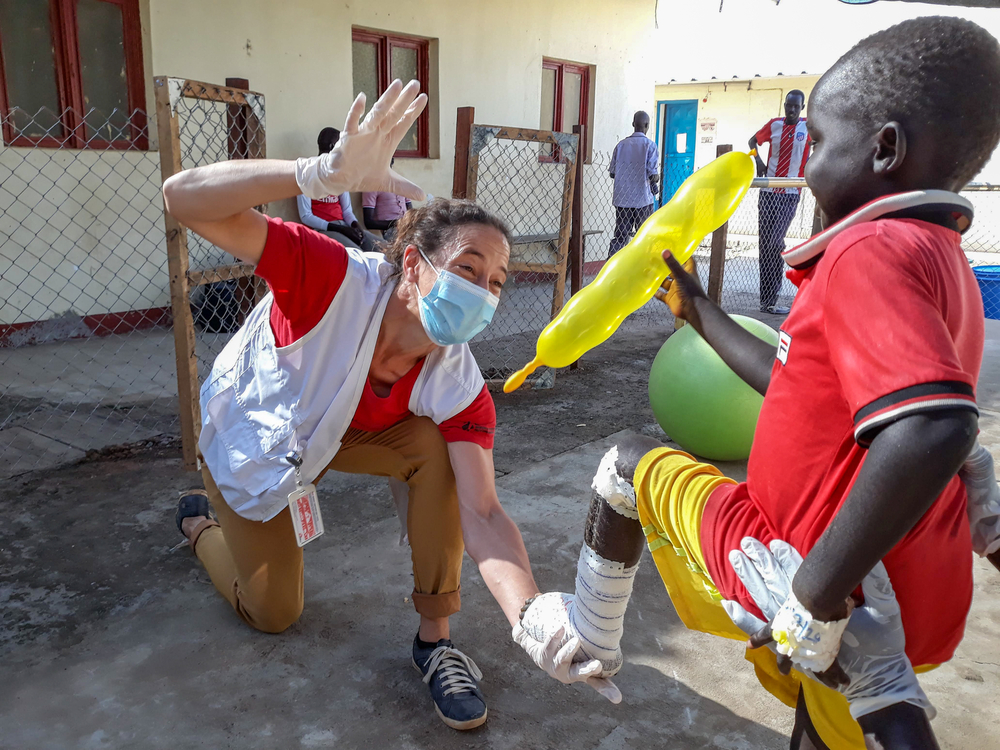
2 minute read
A PATIENT'S STORY | SOUTH SUDAN
Anyar, five years old, arrived at Médecins Sans Frontières’ Agok hospital in Abyei Special Administrative Area in October 2020.
He had been bitten by a snake while playing outside his house in the evening. His father immediately started the 12-hour journey to bring Anyar to the hospital, leaving his wife and their baby behind at home. Anyar and his father slept on the road along the way, as there was no shelter. When they arrived at the hospital, Anyar’s left foot and leg were swollen, posing a risk to his life. When patients are delayed getting to a hospital, treatment of snakebite can be very difficult: the delays may cause serious damage, including ‘compartment syndrome’, where swelling caused by the venom increases pressure within a muscle compartment to the point that blood cannot supply the muscles and nerves with oxygen and nutrients. Even with antivenom, muscles and nerves fail and may eventually die without surgery.
In Anyar’s case, the Médecins Sans Frontières team performed an operation to save his leg. After the surgery, physiotherapy was an essential step in Anyar’s recovery. When he first started the sessions, he would cry, but as the physiotherapists created a fun environment, he started to enjoy them. In early December (in the session pictured), Anyar walked without any support for the first time since the snakebite.
Snakebite is a hidden health crisis. Every year, an estimated 2.7 million people are bitten by venomous snakes, resulting in death for more than 100,000 people and lifelong disfigurement and disability for 400,000 more.





